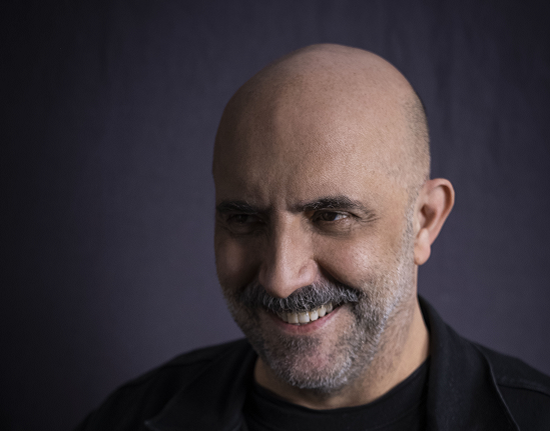Gaspar Noé © Philippe Quaisse / Unifrance
A deep Wikipedia dive on the list of favourite films that director Gaspar Noé has presented to tQ for his Baker’s Dozen will present a cavalcade of scathing reviews, moral panic, film festival uproar and prematurely ended careers. Perhaps such a divisive list is to be expected from a director who has always provoked extreme reactions. Arguably his best known release, Enter The Void, for instance, received boos and a standing ovation at the same time during its Cannes premiere in 2009; the graphic content of many others – the infamously unflinching rape scene in Irreversible, for example – have prompted regular walkouts, mass fainting and furore in their time.
Yet what’s evident from speaking to Noé is that he does not seek extremity for the sake of it – whether as a filmmaker or as a film enthusiast. “They’re just good movies!” he protests, when pushed on the amount of taboo-busting films in his Baker’s Dozen. “In some films there are scenes that are controversial that are totally stupid and useless, but there are also movies with strong images. Cinema is just an imitation of life.”
His new film, Vortex, shows that Noé does not need to rely on transgression and controversy to imitate life’s more devastating realities. It is by some distance his most meditative film, but no less intense. Made in the aftermath of Noé’s near-fatal brain haemorrhage in 2020, it stars Françoise Lebrun as a retired psychiatrist suffering with dementia after a stroke, and Dario Argento as her husband, who lives in denial about the rapid acceleration of her condition and chooses to focus instead on his book about dreams in cinema (a topic that also comes up often in Noé’s Baker’s Dozen). They are shown in split screen, their divergence into two separate worlds made brutally obvious; his technique is highly effective, and the results are highly affecting.
What comes through the most in our time together is that his love for cinema runs deep. Although, as he admits with an apology towards the beginning of our interview – which is squeezed into forty minutes at the end of an all-day press junket on Zoom – he’s feeling exhausted by the time we speak, he’s erudite, engaged and eager to explore the wider context of each title. He was unable to narrow down his list of favourites from the seventeen he prepared in advance to the regulation thirteen and insists that we cover every single one, even if it means a mad dash to make time for the next interviewer. Regretfully, Baker’s Dozen rules dictate that Kenji Mizoguchi’s The Life Of Oharu, Luis Buñuel’s Los Olivados, Cristian Mungiu’s 4 Months, 3 Weeks, 2 Days and Ulrich Seidl’s Paradise: Love must be relegated to the status of honourable mentions.
Gaspar Noé’s new film Vortex is out in cinemas now. To begin reading his Baker’s Dozen, click the portrait below.


